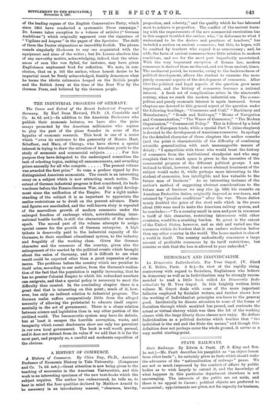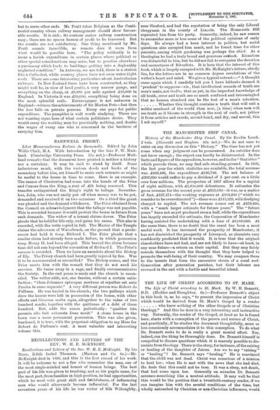STATE RAILWAYS.
State Railways. By Edwin A. Pratt. (P. S. Bing and Son. Is. net.)—Mr. Pratt describes his pamphlet as "an object-lesson from other lands " ; he certainly gives us facts which should make the advocates of the "nationalisation of railways" pause. Wo are not so much impressed by the conduct of affairs by public bodies as to wish largely to extend it, and the knowledge of what happens in this particular department elsewhere is not encouraging. The interests of the public are set aside, and there is no appeal to Caesar; political objects are preferred to economical ; appointments are given, not for capacity for business, but to serve other ends. Mr. Pratt takes Belgium as the Conti- nental country where railway management should show favour- able results. It is rich ; its contour makes railway construction easy ; there are no spaces barren of profit to be traversed. But the results are not satisfactory. One thing mentioned by Mr. Pratt sounds incredible, so remote does it seem from what would be possible here. "The policy evidently is to incur a lavish expenditure in certain places where political or other special considerations may arise, but to practise elsewhere a parsimony which leads to buildings getting into a deplorably neglected condition." In Antwerp, we are told, there is a station like a Cathedral, while country places have not even water-tight roofs. There are some interesting particulars about Australasian railways. In New Zealand these have been constructed, as they might well be, in view of land gratis, a very narrow gauge, and everything on the cheap, at £8,888 per mile against £45,000 in England. In Victoria it was £50,000, everything being done on the most splendid scale. Extravagance is not unknown in England—witness the achievements of Sir Morton Peto—but then the loss falls on private persons. Every one pays for public expenditure. The pamphlet is well worth studying. There are not wanting signs here of what certain politicians desire. They would carry the working man for practically nothing, and double the wages of every one who is concerned in the business of carrying him.































































 Previous page
Previous page